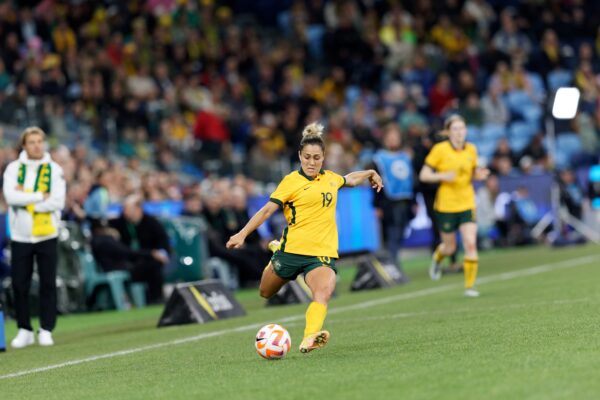
South Melbourne and New Zealand legend Vaughan Coveny explains how the Essendon Royals are embracing technology to deliver training and education during the state-wide lockdown.
It seems like yesterday that many Victorians were optimistic about some form of state-level football returning in 2020. By July, the optimism quickly faded as a resurgence of COVID-19 forced the state back into lockdown and dashed the hopes of the football industry.
But despite the wave of negativity surrounding the current state of affairs, crisis can breed opportunity. Many clubs are turning to technology to stay connected and few are embodying a proactive mentality as well as the Essendon Royals Soccer Club.
The Royals’ brains trust, led by Head of Football Vaughan Coveny, have implemented an online training portal designed to deliver quality coaching sessions live and electronically to its youth players.
Supplementary to continuing each player’s personal development, the training is designed for players to maintain their sense of community and social interaction during what is an isolating and challenging time.
“As a club, we were thinking about ways to reach out to our members and give back during this difficult period. They are important to us and in tough times we want to look after them and give them every tool to help them through the process,” Coveny says.
“The club has a fantastic committee made up of more than 20 volunteers and an enthusiastic president, Richard Di Sauro, who are all working endlessly at the moment to keep things moving.”
The current structure of the training is setup to include three sessions per week. Each session is designed to cater for different age groups, under-7 to under-9, under-10 to under 12, and U13s to U18s.
The training sessions are inclusive of both genders and are being delivered by a combination of Essendon’s community and National Premier League coaches.

The response has been largely positive from both players and their families, who have lauded the physical and mental benefits a collective training program can bring during a time of social isolation.
“There has been an overwhelming response to be honest. A lot of the kids are really excited by it and once the session starts, they are engaging each other and approaching the training enthusiastically,” Coveny says.
“After our first session we had a lot of people saying they wanted to do it again and asking when the next training was going to be. So overall feedback has been really positive.”
Senior women’s player Bella Santilli, who also acts as a junior’s coach delivered the first session in late July. The training was aimed at the under-10 to under-12 age bracket and focused on ball mastery. More than 30 players took part.
This attendance rose to almost 40 players for the second session, which was run by senior women’s coach Mick Gallo, and by the third session, more than 60 participants tuned in to join Claude Gomes’ advanced ball mastery program.
A key to the successful implementation of transitioning online is accessibility. The Royals have utilised social media to promote their activities which helps the club to remain connected with the community and staff carefully plan out sessions to ensure complex equipment is not required.
“In terms of setup, it has actually been fairly easy. The coaches were keen to get involved and they can do it from their laptop at home. They will demonstrate an exercise, or have their son or daughter demonstrate an exercise and walk and talk the participants through the session,” Coveny says.
“We’ve done strength and conditioning which the kids really enjoyed, and we’ve ensured the fitness-based sessions can be done indoors. It’s a really good initiative and we’ll continue to do it until we can get back to normal training.”
With the online coaching strategy proving a success so far, the Royals are branching their online education to other important facets of the game, including the promotion of nutrition and mental health.
“A professional nutritionist will be delivering a nutrition presentation to all our players about eating the right foods during this time, as well as what we should all be doing before and after training,” Coveny says.
“We have also introduced a football app for the mental health side of things called Arete. We are currently delivering it to our NPL teams and Women’s teams on a trial basis. We are planning to get feedback from them and parents to see what they think of the app.”
“We think it is important to reach out on that side of the game. Mental health is becoming more important and more understood these days,” Coveny adds.
With the online training proving a success and an ongoing focus on the physical and mental wellbeing of the Royals football community, Coveny is hoping the club will act as a positive example for the football industry and inspire others to look for opportunity in times of crisis.
“Because we all have more time now, we are able to think about things like mental health, nutrition, and technology and deliver on things that we usually wouldn’t be able to,” he says.
“It’s been a difficult time. We all have to stay strong and get through it together. The situation is going to impact clubs financially, but we think we can get through it by supporting each other as well as we can.”


























